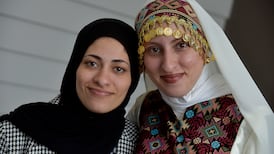This year’s higher-level paper was doable with no major surprises, according to Elizabeth Hayes-Lyne of Frenchnotes.ie. As usual there was an emphasis on grammar, with students required to know about shops, recipes, animals, days of the week and months of the year.
Ms Hayes-Lyne, a teacher at CBS Sexton Street in Limerick, suggested more schools should introduce an oral test in the Junior Cert French exam. She added that there should be more continuous professional development to encourage schools to bring in the conversation test, which is optional.
Natasha Lynch, managing director of EssentialFrench.ie, said this year’s higher-level themes were engaging and sometimes easy, although it “kicked up a notch” by question six, which challenged students.
Students were asked to write a postcard and say they visited a cathedral; for students who struggled with the correct noun, the French for cathedral is “la cathédrale”.
The ordinary-level paper followed a familiar format and required students to answer on holidays at home, emojis and teenage problems. “There was nothing complicated or unusual, and students will have been able to manage,” said Ms Lynch.
On the same day, Junior Cert students breathed a sigh of relief when 1916 cropped up on both the higher- and ordinary-level history papers.
“I think every child was absolutely delighted with that,” said Michael Hogan, a history teacher at Deele College in Raphoe, Co Donegal.
The only small surprise, he said, was an unexpected question on the European Economic Community. It asked students to mention two benefits of Ireland becoming a member of the EEC in 1973, apart from agriculture. “It wasn’t an unfair question by any means, it just might not have been expected by the majority of students.”










